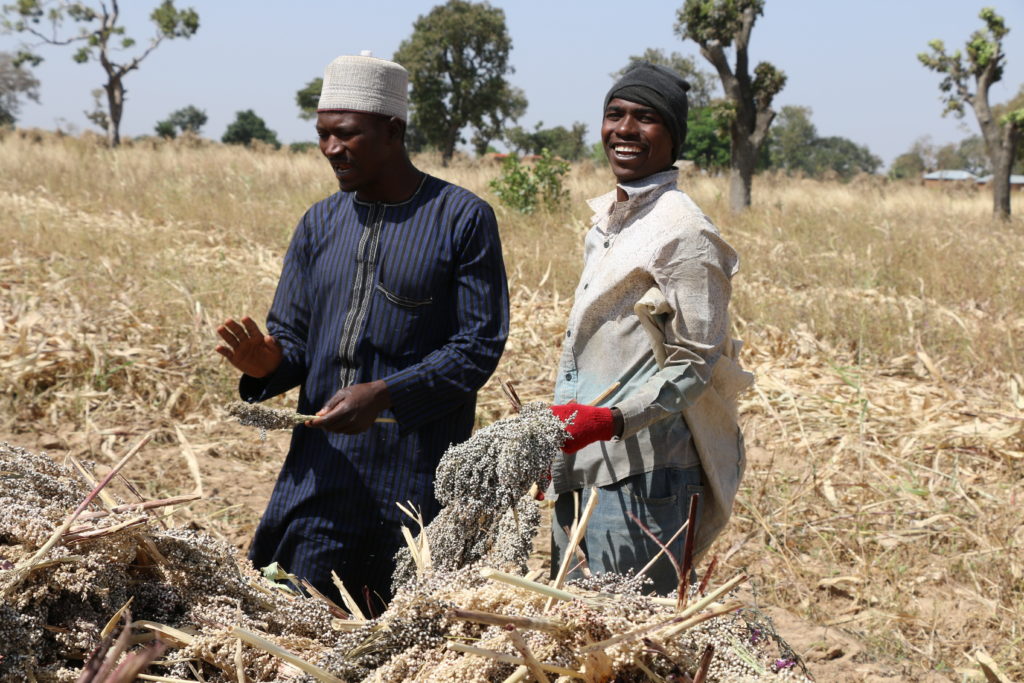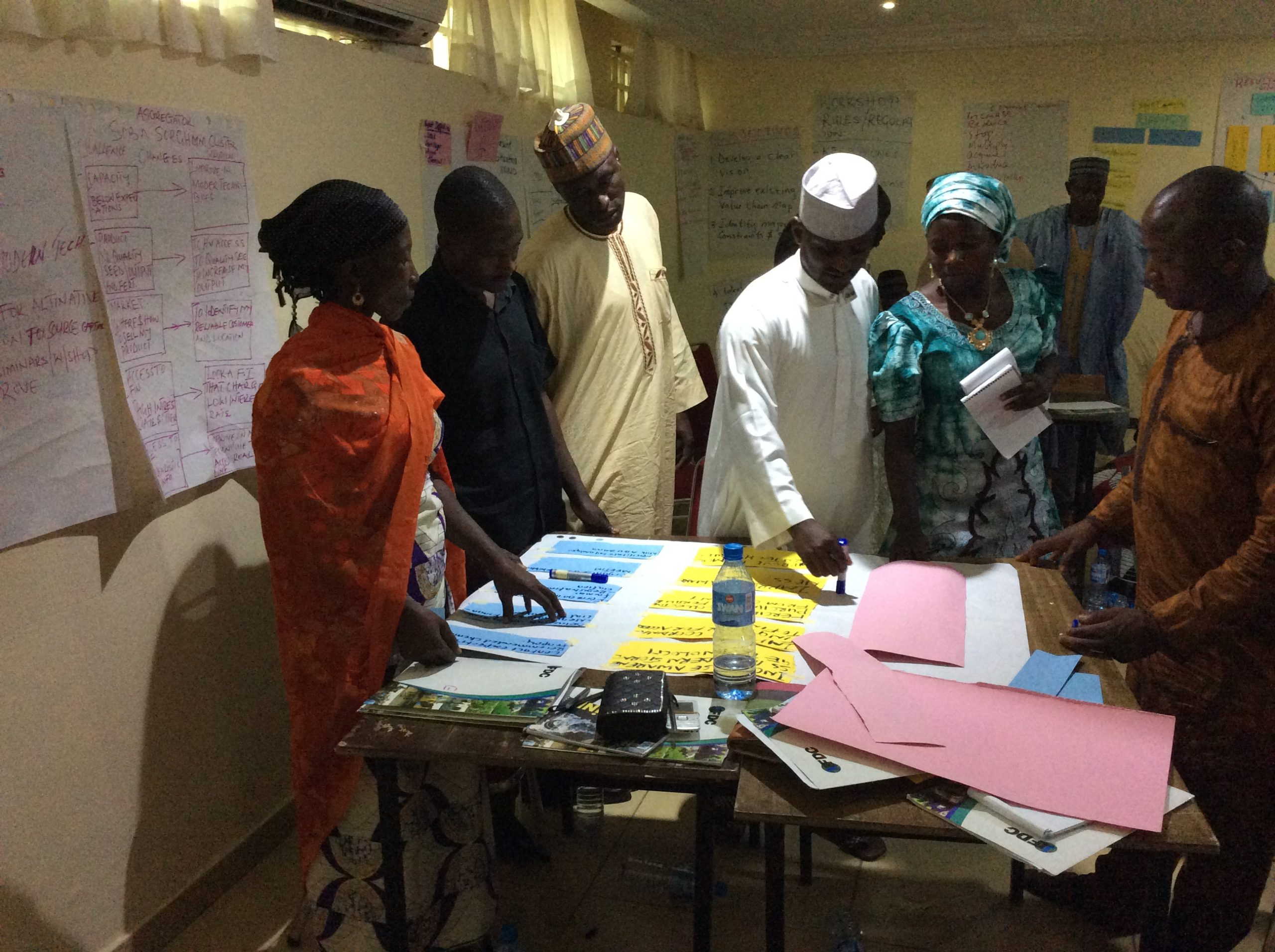
Credit requires trust – but a survey by the World Bank reveals that only a quarter of Nigerian smallholder farmers “fully trust” banks. These producers have even lower levels of trust in microfinance institutions (MFIs) because rates and withdrawal fees are perceived as prohibitively expensive, or because farmers do not want to risk losing their collateral.
It’s also well established that bankers tend to see the agriculture sector as very risky for a variety of reasons: unpredictable rainfall, plant diseases, poor post-harvest infrastructure, weak farmer organizations, market price fluctuations and last but not least, the difficulty in identifying genuine farmers as opposed to ‘briefcase’ farmers or opportunists. As a result, banks tend to insist on high collateral, often beyond the farmer’s reach.
“You lend money to farmers and sometimes they do not pay you back, thinking it’s government money. Also, we give the loan for a specific farm-related investment, but the money then goes into something entirely different,” said Justina Dagu, branch manager of the LAPO Microfinance Bank in Zaira.
This lack of trust between financial institutions and farmers has far-reaching implications. It constrains financial inclusion, leaves small-scale farmers starved of credit, affects investment in agriculture, and impacts on food security and employment generation.
A partnership between 2SCALE and Nestlé Nigeria is helping to improve productivity, quality and market linkages for sorghum farmers. An important component is financial inclusion – in particular, developing and introducing financial products tailored to the needs of small-scale farmers.
2SCALE designed an innovative method to provide farm inputs on credit, through a partnership between input retailers, farmers, their producer organizations (POs), aggregators and LAPO Bank. The bank provides a guarantee to input suppliers, allowing them to sell on credit. The inputs go from the suppliers to aggregators to POs and eventually to farmers, with no payment. After the harvest, POs repay the loan in kind (sorghum of equivalent value) to the aggregators, who then repay the bank in cash.
“We disbursed 34 million naira as loans to over 700 farmers in Kaduna, Katsina and Kano states. We plan to reach 2000 farmers in 2018,” Dagu explains. “The reimbursement rate is around 90%. In Kano, it is 100 percent – something that has never happened before.”
She emphasizes that this was achieved because of two factors. Nestlé, through its contracts with aggregators, offered a guaranteed market and remunerative prices for farmers. And 2SCALE mobilized, registered and trained farmers, enabling them to meet Nestle’s strict quality standards. “This intermediation and capacity building by 2SACALE is why we were confident we could trust the farmers. In the future, we are thinking of disbursing 800 million to 1 billion Naira”.





